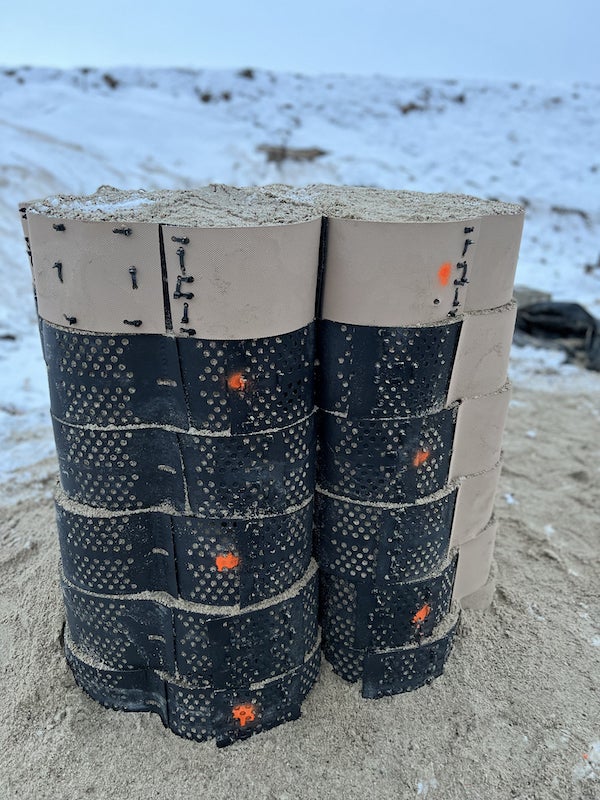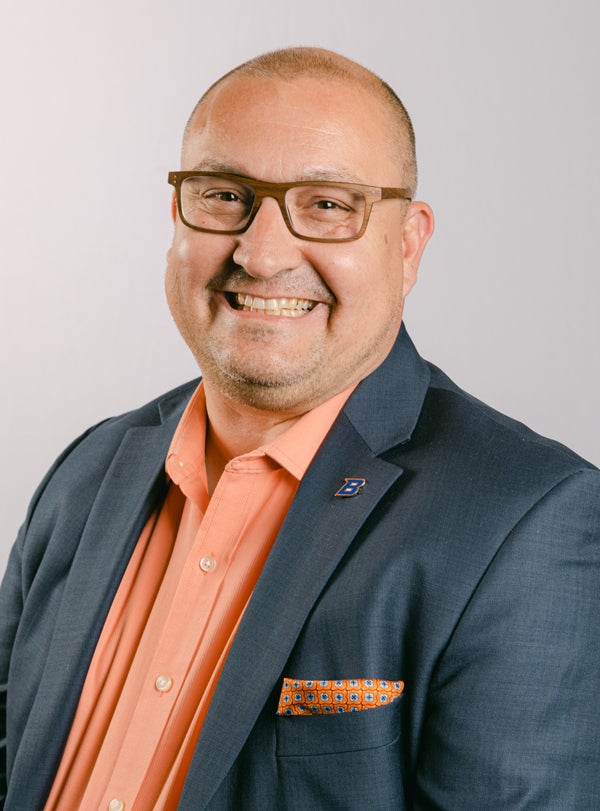
The US is literally paved with millions and millions of miles of roads. And they are very costly to build, not only in dollars but in environmental impacts. For example, when roads are laid, the earth that is excavated must be replaced by quarried materials from another site to ensure stability.
However, with a new grant of $286,316 from the Idaho Department of Commerce Idaho Global Entrepreneurial Mission (IGEM), civil engineering Associate Professor Bhaskar Chittoori and Department of Civil Engineering Chair Nick Hudyma could fundamentally change how roads are made, and how much they cost.

With this grant the researchers are partnering with the Idaho Department of Transportation and Presto Geosystems of Appleton, WI to research, develop and test a microbial method to use the excavated soil at the road site, and eschew the need for outside quarried materials.
This process would advance Chittoori’s research of treating microbes in the native, excavated soil to make calcite (a strong, and stable form of calcium carbonate).
“With our method, we can use the excavated material to construct the pavement itself back in the geocell (honeycomb structure) and use the bacteria in the soil to precipitate calcite, so that the soil becomes much stronger and we can use it as a pavement base” said Chittoori.

The calcite-rich geocell layer would then be paved over directly. This new technique would mitigate the expense of hauling in new materials, and the environmental strain of quarrying rock.
“We are also going to work with the Idaho transportation department to find a section of Idaho road where we can use this way of pavement base-building and monitor that section for some time after the project is done,” Chittoori said.
As a background on the project, they are working in conjunction with the Idaho Dept of Transportation and PrestoGeosystems, Appleton, WI on a process to alleviate the need to haul away the excavated dirt and haul in new backfill for road construction, the new process uses microbes in the soil that would create a more stable underlayment for the asphalt layer.
IGEM funds are awarded to Idaho public research universities to partner with industry leaders on research projects geared toward commercialization.
“This innovative materials research project may lead to disruptive approaches for paving our infrastructure. The potential results could provide significant savings to the State of Idaho and all states for basic road construction and repairs,” Idaho Department of Commerce Director Tom Kealey said. “Its global reach could provide significant benefits, both economically and ecologically.”
This fiscal year, the IGEM Council awarded $794,914 for research to commercialize innovations that benefit Idaho and beyond.
Become a donor to support research like this at Boise State.
